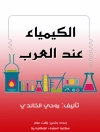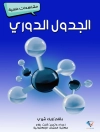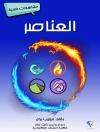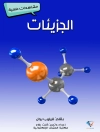The 34th Annual Conference of the International Society on Oxygen Transport to Tissue (ISOTT) was held during August 12–17, 2006 in Louisville, Kentucky, USA. The emphasis of ISOTT-2006 was on ‘‘Expanding our Horizon. ’’ In terms of research topics, we added some newer ones – Translational Studies, Tissue Engineering, and Nanobiotechnology. In terms of participants, we put extra effort into including more junior researchers because we felt that they were the future of our society and for the first time in ISOTT history we had presentations made by high school students. In terms of organization, it was truly local, national, and international. The support in organizing ISOTT-2006 came from various directions: We would like to express our special thanks to the University of Louisville (Uof L), especially to the Uof L Provost Office, Speed School of Engineering, School of Medicine, and the office of the Vice President of Research. Uof L’s financial support allowed us to supplement the student’s registration fees s- stantially and to invite so many excellent distinguished lecturers. It should be noted that none of our invited speakers requested an honorarium – we thank them immensely. I would personally like to thank the Chemical Engineering Department of Uof L for allowing me to take time off from my teaching resp- sibility. We appreciate Uof L President Ramsey’s visit to our dinner held at the Derby Museum. We thank the Case Western Reserve University for having their MIMS Center symposium with us.
Innehållsförteckning
ISOTT: Roots, Founding and Beyond.- ISOTT: Roots, Founding and Beyond.- Dietrich W. Lübbers.- Oxygen Transport in Tissue.- Investigation of Frontal Cortex, Motor Cortex and Systemic Haemodynamic Changes During Anagram Solving.- Do Red Blood Cell-?-Amyloid Interactions Alter Oxygen Delivery in Alzheimer’s Disease?.- Uncoupling Protein-2 in Diabetic Kidneys.- Measurement of Oxygenation at the Site of Stem Cell Therapy in a Murine Model of Myocardial Infarction.- Oxygen Pressures in the Interstitial Space of Skeletal Muscle and Tumors in vivo.- Other Metabolite Transport in Tissue.- Adjuvant Induced Glucose Uptake by Activated T Cells is not Correlated with Increased Survival.- Lactate, with Oxygen, Incites Angiogenesis.- Blood, Hemostasis and Hemodynamics.- Activated Protein C Modulates Chemokine Response and Tissue Injury in Experimental Sepsis.- Manipulation of the Affinity Between Protein and Metal Ions by Imidazole and PHfor Metal Affinity Purification of Protein c from Cohn Fraction IV-1.- Separation of Factor V Leiden Molecule, a Mutated Form of Factor V, from Plasma of Homozygous Patient.- A Simple Volume Related Model of Arterial Blood Pressure Generation.- Tumor, Cancer and Oncology.- Strikingly High Respiratory Quotients: A Further Characteristic of the Tumor Pathophysiome.- Endogenous Hypoxia Markers: Case Not Proven!.- RAD18 Signals DNA Polymerase IOTA to Stalled Replication Forks in Cells Entering S-phase with DNA Damage.- Alanine in HI: A Silent Mutation Cries Out!.- Biomathematics in Cancer Detection: Simulation of Lipogenesis in Cancer.- Activity of Drug Efflux Transporters in Tumor Cells Under Hypoxic Conditions.- Antioxidants Reduce Consequences of Radiation Exposure.- Anti-Cancer Effect of Resveratrol is Associated with Induction of Apoptosis via a Mitochondrial Pathway Alignment.- Tissue Engineering.- Computationally Determined Shear on Cells Grown in Orbiting Culture Dishes.- Formation of Capillary Tube-like Structures on Micropatterned Biomaterials.- Bio-Instrumentation.- Error Analysis of Finite-Spectral-Linewidth Illumination in Optical Oximetry Systems.- Changes in the Attenuation of Near Infrared Spectra by the Healthy Adult Brain During Hypoxaemia Cannot be Accounted for Solely by Changes in the Concentrations of Oxy- and Deoxy-Haemoglobin.- Assessment of Oxygenation and Perfusion in the Tongue and Oral Mucosa by Visible Spectrophotometry and Laser Doppler Flowmetry in Healthy Subjects.- Cerebral Tissue Oxygen Saturation Calculated Using Low Frequency Haemoglobin Oscillations Measured by Near Infrared Spectroscopy in Adult Ventilated Patients.- Biosensor for Diagnosing Factor V Leiden, A Single Amino Acid Mutated Abnormality of Factor V.- Scanning Laser Ophthalmoscope-particle Tracking Method to Assess Blood Velocity During Hypoxia and Hyperoxia.- Nano-Bio Technology.- Highly Sensitive Rapid, Reliable, and Automatic Cardiovascular Disease Diagnosis with Nanoparticle Fluorescence Enhancer and Mems.- Tumor-specific Nano-entities for Optical Detection and Hyperthermic Treatment of Breast Cancer.- LHRH Receptor Targeted Therapy for Breast Cancer.- Translational and Clinical Studies.- Saturation of Hemoglobin in Intracranial Arteries is Similar in Patients with Hemodynamically Relevant and Irrelevant Stenosis of the Internal Carotid Artery.- A Three-tiered Approach for Calibration of a Biosensor to Detect Estrogen Mimics.- Biosensors for Detecting Estrogen-like Molecules and Protein Biomarkers.- Modeling and Analysis of Metabolism and Transport.- Muscle Oxygen Uptake Differs from Consumption Dynamics During Transients in Exercise.- Modeling Oxygenation and Selective Delivery of Drug Carriers Post-Myocardial Infarction.- Hypobaric Hypoxia Reduces GLUT2 Transporter Content in Rat Jejunum more than in Ileum.- Modeling Oxygen and Carbon Dioxide Transport and Exchange Using a Closed Loop Circulatory System.- Effect of Alternate Energy Substrates on Mammalian Brain Metabolism During Ischemic Events.- Cerebral Blood Flow Adaptation to Chronic Hypoxia.- Mitochondrial Dysfunction in Aging Rat Brain Following Transient Global Ischemia.- Others.- Measurement of Cerebral Tissue Oxygenation in Young Healthy Volunteers During Acetazolamide Provocation: A Transcranial Doppler and Near-Infrared Spectroscopy Investigation.- Measurement of Frontal Lobe Functional Activation and Related Systemic Effects: A Near-Infrared Spectroscopy Investigation.












